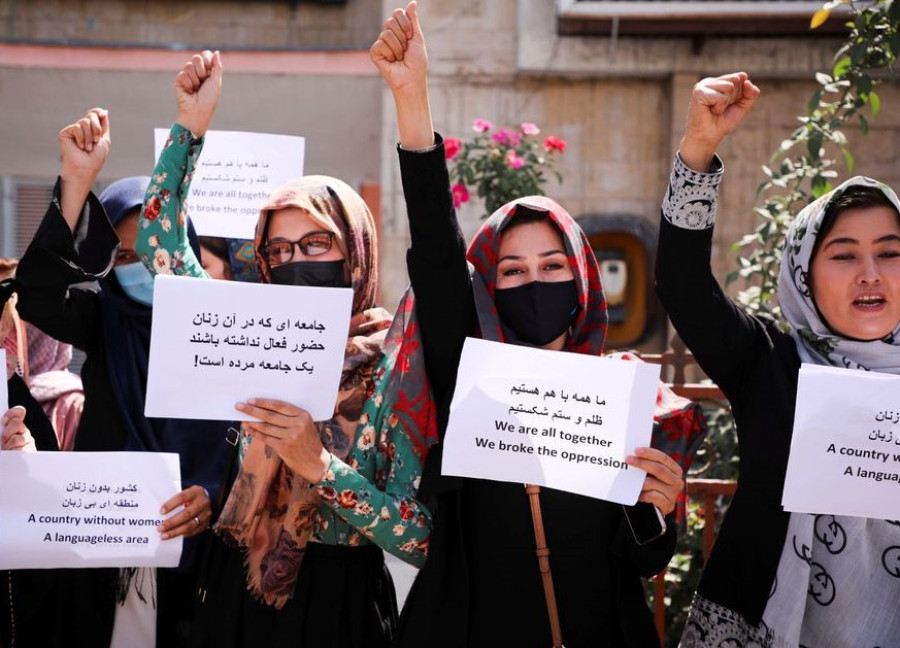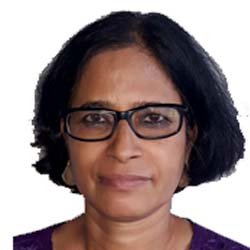Columns
Afghan women fight for education
They have been brave to protest against the ban, and will not give up their demand.
Smruti S Pattanaik
True to their ideological moorings, the Taliban on December 20 last year announced that they would ban university education for women, which until then was continuing in segregated classrooms. Long before this announcement, secondary education for girls had stopped. According to UNICEF, some 850,000 girls have been prevented from attending secondary education since the Taliban took over Kabul. They had pledged to continue girls’ education as ordained by Sharia during the peace talks with the United States in Doha, Qatar in 2020. But it appears that Afghanistan has faded from the minds of the international community as interest shifted to the Russia-Ukraine war. As a result, Taliban action hardly faces condemnation, not that they pay any heed to international opinion.
The international community is yet to recognise the Taliban, but they are not bothered about recognition either. The regime is focussed on internal restructuring to undo all the political “achievements” that Afghanistan has made. Since the Taliban takeover on August 15, only humanitarian assistance has flowed in to address the food crisis. This lack of international engagement means there is less pressure on the regime. The issue at hand is to implement their version of Sharia in the Islamic Emirate which they think is the source of their legitimacy and power. In July last year, at a gathering of Islamic clerics which Taliban supreme leader Mawlawi Hibatullah Akhundzada also attended, only two clerics spoke about girls' education which reflected the domination of hardliners.
Ministry renamed
Soon after the Taliban took over, they renamed the Ministry of Women’s Affairs as Propagation of Virtue and Prevention of Vice, and dissolved the Human Rights Commission and four other departments, saying they were unnecessary and could not be maintained due to budget constraints. In the initial days of Taliban rule, Abdul Baqi Haqqani, the higher education minister and a senior Taliban member, had said that women would be allowed to attend university if they were attired properly keeping Islamic values in mind, but they would not be allowed to attend any institution that previously had co-education.
While schools shut their doors, women were not allowed to join office and work, and were not expected to be seen sharing public spaces with men. Sher Mohammad Abbas Stanikzai, the Taliban deputy minister of foreign affairs, had said in Kabul in September last year that women must get an education, but the views of hardliners prevailed. In October, Baqi was replaced by Nida Mohammad Nadim, a hardliner cleric who was appointed minister of higher education. After he took over, around 300 veiled women waving Taliban flags attended a lecture in Kabul University in support of the Taliban on the anniversary of 9/11. Some held placards that decried co-education, and some said, “We are satisfied with the attitude and behaviour of Mujahideens.”
It is important to look back to see how Afghan women have been fighting this obscurantic regime for their rights. In September 2021, women's protests against Taliban government policies took place in Herat, and soon spread to other cities. Journalists were assaulted for covering this protest. The Taliban threatened them and even used violence in some cases. Subsequently, the Ministry of the Interior issued a notice banning demonstrations without prior permission.
Some of these women have resorted to other ways to keep their network alive, and are organising protests using WhatsApp and Facebook. These women mostly operate from safe houses, take on false identities, and keep their plans confined to a close-knit group. They regularly delete their chats and photos, and change their numbers. But some of them have not been successful in keeping their identities secret from the Taliban. In February, two women activists disappeared, and 24 others were arrested. On May 7, the Hijab, mandating full covering of the body except the eyes, was enforced by the Taliban. Yet, Afghan women have been brave to protest, and are not prepared to abandon their demand for education. To compensate for the Taliban’s ban, many secret schools for girls have come up in various parts of the country. In August last year, in a rare show of dissent, women gathered in Kabul to protest the August 15 takeover by the Taliban as black day. The Taliban used gunfire to disperse them.
Women's position
The Taliban’s attitude towards women became clear when no woman representative was included in the cabinet. In spite of years of talks that led to the Doha peace process, it is apparent that the Taliban will not compromise on their stand on women's position in the Islamic Emirate of Afghanistan. The international community, which hardly had a choice in Afghanistan, could only express “hope” over the Taliban's treatment of women. This shows how the international community abandoned not just Afghanistan but also the women.
Afghan women continue to keep their protests alive, and are not ready to give up the freedom they enjoyed in the last 20 years. While the international community is busy ordaining a geopolitical order that is conducive to their state, it is the Afghan women who require support. The ideological defeat of the West in Afghanistan has repercussions for women. The country is at the bottom in the gender parity index, and women who constitute half of Afghanistan’s population are looking at a bleak future under the Taliban regime. Nonetheless, they are hopeful of drawing international support and attention as they struggle to return to schools and universities that will give wings to their aspirations.




 8.75°C Kathmandu
8.75°C Kathmandu















